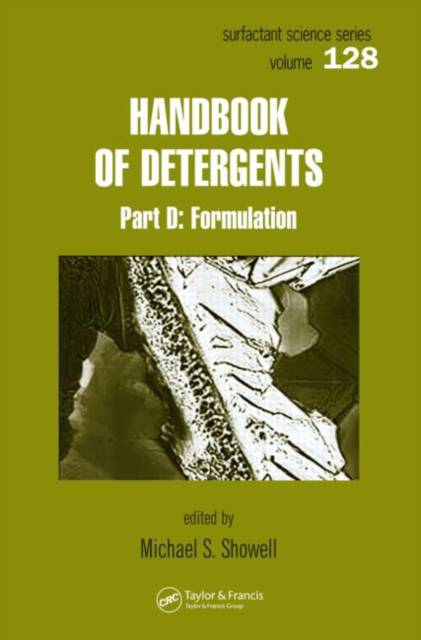
- Afhalen na 1 uur in een winkel met voorraad
- Gratis thuislevering in België vanaf € 30
- Ruim aanbod met 7 miljoen producten
- Afhalen na 1 uur in een winkel met voorraad
- Gratis thuislevering in België vanaf € 30
- Ruim aanbod met 7 miljoen producten
Zoeken
€ 564,95
+ 1129 punten
Omschrijving
Beyond use in the consumer markets, detergents affect applications ranging from automotive lubricants to remediation techniques for oil spills and other environmental contaminants, paper and textile processing, and the formulation of paints, inks, and colorants. Faced with many challenges and choices, formulators must choose the composition of detergents carefully. The fourth and latest installment of the Handbook of Detergents, Part D: Formulation enables formulators to meet the demands of the increasing complexity of formulations, economic and sustainability constraints, and reducing the impact of detergents on the environment to which they will eventually be released.
Specificaties
Betrokkenen
- Uitgeverij:
Inhoud
- Aantal bladzijden:
- 548
- Taal:
- Engels
- Reeks:
- Reeksnummer:
- nr. 128
Eigenschappen
- Productcode (EAN):
- 9780824703509
- Verschijningsdatum:
- 1/07/2005
- Uitvoering:
- Hardcover
- Formaat:
- Genaaid
- Afmetingen:
- 181 mm x 264 mm
- Gewicht:
- 1056 g

Alleen bij Standaard Boekhandel
+ 1129 punten op je klantenkaart van Standaard Boekhandel
Beoordelingen
We publiceren alleen reviews die voldoen aan de voorwaarden voor reviews. Bekijk onze voorwaarden voor reviews.






